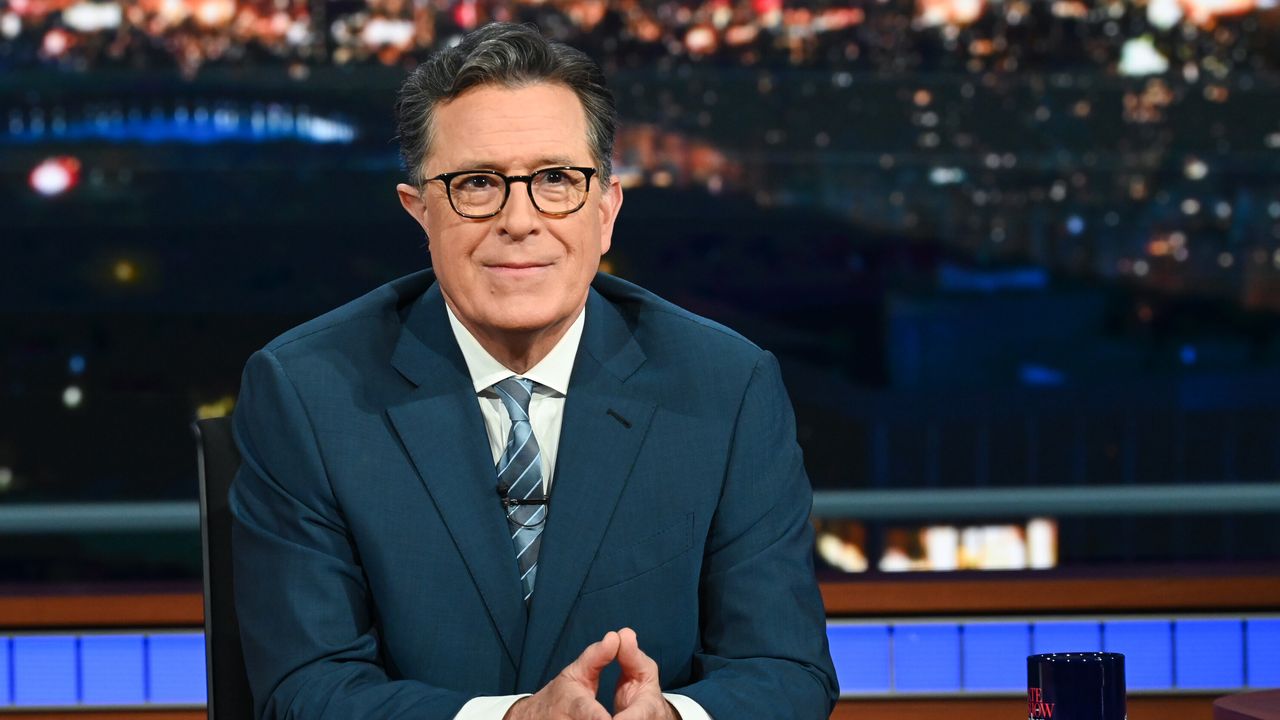The timing sure seems to speak for itself. On the July 14 episode of his late-night talk show, Stephen Colbert condemned Paramount for settling what
The timing sure seems to speak for itself. On the July 14 episode of his late-night talk show, Stephen Colbert condemned Paramount for settling what First Amendment advocates have called a “frivolous” lawsuit from Donald Trump—while the Federal Communications Commission just happened to be deliberating Paramount’s upcoming merger with Skydance. Specifically, Colbert called the move a “big, fat bribe.”
A day later, Skydance CEO David Ellison met with FCC leaders as the company’s proposed merger with Paramount hung in the balance. Two days after that, Paramount announced that Colbert’s Late Show would end next May, at the close of the broadcast season. On Thursday, the FCC approved the merger.
Paramount has framed the cancellation as “purely a financial decision,” and anonymous sources have told multiple news outlets that the show was losing at least $40 million per year. But for some reason, journalists, TV writers, and politicians don’t seem to be buying it. The backlash has been swift and relentless—including on Paramount-owned platforms.
“The president does not get to pick what goes on TV, and I think a lot of people, regardless of political affiliation, would generally agree with that statement,” says Liz Hynes, a late-night writer and Writers Guild of America East council member whose past credits include The Late Show and Last Week Tonight With John Oliver.
Colbert, who will remain on air for about 10 more months, has said “the gloves are off.” On the also Paramount-owned Daily Show, Colbert’s former boss, Jon Stewart, told their corporate overlords, “Go fuck yourself.” Predictably, South Park’s season 27 premiere found a particularly colorful (and phallic) way to knock both Trump and its owners. None of these comic voices were exactly tender on Trump before, or ever reluctant to bite the hand that feeds them. But now, it seems, they’re more revved-up than ever. And they’re not alone.
Some are calling on viewers to cancel their Paramount+ subscriptions in retaliation. A petition to save The Late Show, delivered to Paramount headquarters, reportedly garnered more than 250,000 signatures. Last Monday, a crowd of protesters gathered at the Ed Sullivan Theater, where The Late Show films. And in a poetic bit of irony, Colbert’s YouTube viewership is soaring. Prominent comedians, actors, and writers including David Letterman, Michael Schur, Julia Louis-Dreyfus, Jamie Lee Curtis, and Andy Richter have criticized the decision.
The comedy community hopes to make the cultural cost of capitulating to Trump as high as possible. “We are a fighting union,” says another late-night insider who requested anonymity for fear of becoming a target of the administration, comparing the pro-Colbert fervor to the passion that animated the 2023 writers strike. “We fought in the strike and won.… We will keep fighting, because it’s not just for us.”
It’s tough to overstate how devastating The Late Show’s cancellation feels—not just for the late-night genre, but for the entertainment industry as a whole. The Late Show reportedly employs roughly 200 people, and from a labor perspective, Hynes says, “this is going to leave a real crater.”
For the past three decades, Hynes notes, late-night talk shows have also launched the careers of talent like Oscar and Emmy winner Cord Jefferson and The Menu cowriter Seth Reiss. It’s an crucial promotional vehicle for emerging musicians, actors, television series, and feature films as well. Although podcasts and YouTube series like Hot Ones and Chicken Shop Date serve a similar function in the current publicity landscape, they tend to book A-listers over novel talent. Even the established celebrities who appear on those shows still want to sit across from late-night hosts like Colbert.
“It’s important for actors, musicians, and artists at every single point in their career to be able to connect with new fans and get their art out there,” Hynes says. “And Late Show was really, I think, a more democratic way for people to do that.”
In the face of failing linear ratings, fatalistic questions about slow night’s future have become common enough that Paramount cited the medium’s “challenging backdrop” in its statement about The Late Show’s cancellation. But even as the industry faces significant headwinds, writers question the assertion that late-night talk shows are a dying breed.
“If you went to any network and said, ‘I can guarantee you two and a half million people a night, 260 nights a year, they would jump at that,” the late-night insider says. In this writer’s view, the inability to monetize these programs isn’t a flaw in the genre or any individual show: “It’s that [the studios] don’t even do things like put the show up at the same time on an app. You can’t watch Colbert on Paramount+. You have to watch it the next day, when it’s old.”

COMMENTS